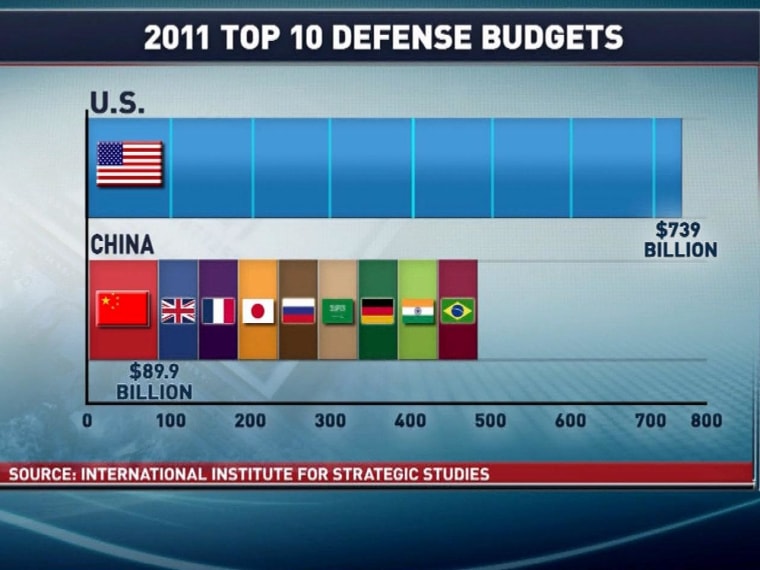Why do Republicans demand less government spending, except when it comes to defense? Rep. Barney Frank (D-MA) called it a "mysterious thing" when he appeared on PoliticsNation Wednesday to discuss a looming showdown over a set of automatic defense cuts, which are scheduled to go into effect next year.
The cuts are the result of the bipartisan agreement made last August in order to raise the debt ceiling, which Republicans only signed on to because it mandated Congress make cuts elsewhere to address the country's deficit. Last year's so-called super committee was supposed to reach an agreement on the cuts, but failed to do so, triggering half a trillion in across-the-board defense cuts—and around the same size cuts to domestic spending—that will go into effect in January if Congress fails to act.
Members of both parties are scrambling to avoid the defense cuts. But as the Rev. Al Sharpton pointed out on PoliticsNation, in 2011 the United States spent $739 billion on defense, according to the International Institute for Strategic Studies, far exceeding any other country in the world. (Chart above.) The country that had the second highest defense budget was China, with $89.9 billion. The U.S. also manages to outspend the other top nine countries combined.
"We can be the strongest nation in the world at about 75% of what we're now spending," Frank said on PoliticsNation. (Video after the break.)
Frank told Sharpton that some of those who oppose defense cuts believe that "America has to bring peace to the whole world." But, he says, "the best-trained, best-armed 30-year-old Americans can't make democracy happen in Iraq. They can't make corruption go away in Afghanistan. They cannot bring cohesion to a society that doesn't have it."
The Republicans have demanded that the government get its "fiscal house in order" for the last several years, touting plans like that of Rep. Paul Ryan of Wisconsin that would make 62% of its cuts to low-income programs, which amounts to about $3.3 trillion. But, as Frank pointed out, when it comes to military cuts, the GOP's beliefs on government spending "flips." This includes Ryan's plan, which would also boost defense spending by $6.2 trillion within the next 10 years.
While the defense industry is threatening layoffs should massive cuts go through, studies show the industry had another record-setting profitable year, and the conservative Cato Institute says this is about contractors "trying to save their profits."
"When you talk about laying off teachers, when you talk about reducing police officers, when you talk about not building highways, when you talk about not having housing for the elderly," Frank said, "they say that's a good thing, because they say when the government spends money it hurts the economy, it detracts from the private economy."
"But when it comes to the military," Frank continued, "it's a mysterious thing to me, apparently everything they believe about government spending flips."
